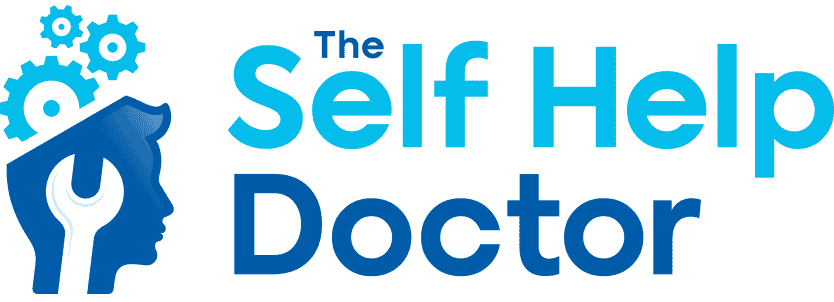How Insomnia Affects Every Corner of Your Life

How Insomnia Affects Every Corner of Your Life
Insomnia doesn’t just keep you up at night—it sneaks into every part of your day. Ever felt too exhausted to focus at work or too irritable to connect with loved ones? These moments are not just frustrating; they’re signs that sleep issues are taking a toll on your relationships and health. But there’s hope. Understanding how insomnia affects your life is the first step toward change. Ready to reclaim your nights and days? Try our free mini-course and start managing your sleep issues today.
Impact on Work Life

Struggling with Focus and Productivity
Insomnia often leads to difficulties in maintaining concentration and efficiency at work. Chronic lack of sleep can make it challenging to stay alert and engaged, leading to decreased productivity. When the brain doesn’t receive adequate rest, cognitive processes slow down, making tasks that once seemed simple feel overwhelming.
Memory retention is another casualty of sleep deprivation, as the brain struggles to process and store information effectively. This can result in forgotten deadlines, missed details, and frequent errors. Employees who suffer from insomnia may find themselves taking longer to complete tasks, impacting their overall performance and career progression.
Moreover, decision-making skills may diminish in a sleep-deprived state. When faced with complex problems, those with insomnia might feel indecisive or choose less effective solutions. By acknowledging these challenges, individuals can begin seeking strategies to improve their sleep and, consequently, their professional lives.
Increased Stress and Burnout
Living with insomnia can also elevate stress levels, contributing to burnout. The constant fatigue from sleepless nights can make everyday stressors feel more intense and harder to manage. Without proper rest, the body’s ability to handle stress diminishes, leading to heightened anxiety and tension.
Prolonged exposure to stress can cause burnout, a state of emotional, physical, and mental exhaustion. This can manifest as feelings of cynicism, lack of motivation, and detachment from work responsibilities. Insomniacs often find themselves caught in a vicious cycle where stress exacerbates sleep issues, and lack of sleep heightens stress.
Breaking this cycle is crucial for mental well-being. Incorporating relaxation techniques and stress management strategies into daily routines can help alleviate some of the pressures that contribute to insomnia. Recognizing these impacts encourages individuals to prioritize sleep as a stepping stone to better stress management.
Strain on Personal Relationships

Emotional Disconnect with Loved Ones
Insomnia doesn’t just affect the workplace; it can also create emotional barriers in personal relationships. Sleep deprivation often leads to irritability and mood swings, making it difficult to connect emotionally with loved ones. These mood changes can result in misunderstandings and conflicts, as partners or family members may not comprehend the root cause of such behavior.
The lack of energy and motivation from sleepless nights can also lead to social withdrawal. Individuals dealing with insomnia might avoid engaging in social activities, preferring to isolate themselves. This withdrawal can create a sense of emotional distance, causing strain on relationships that rely on communication and shared experiences.
To mitigate these effects, it is essential to communicate openly about the challenges posed by insomnia. Encouraging loved ones to understand the impact of sleep issues can foster empathy and patience, facilitating stronger emotional connections despite the challenges.
Communication Breakdowns
Communication is vital to maintaining healthy relationships, but insomnia can disrupt this essential element. Chronic sleep deprivation can impair cognitive functions, making it difficult to articulate thoughts clearly. This can lead to misunderstandings or misinterpretations during conversations with loved ones.
When insomnia takes a toll on patience and tolerance, even minor disagreements can escalate into significant conflicts. The frustration stemming from sleep issues can lead to heightened emotional responses, exacerbating communication breakdowns.
Fostering open and honest communication about the struggles with insomnia can help bridge these gaps. By acknowledging the role of sleep issues in communication challenges, individuals can work together with loved ones to find effective ways to support each other and maintain healthy relationships.
Health Consequences of Insomnia

Physical Health Risks
The physical health risks associated with insomnia are significant. Chronic sleep deprivation is linked to an increased risk of several health issues, including cardiovascular diseases, diabetes, and obesity. The body’s inability to recover during sleep can lead to compromised immune function, making it more susceptible to illnesses.
The lack of restorative sleep also affects metabolism, potentially leading to weight gain. Hormonal imbalances caused by insomnia can influence appetite and satiety, prompting unhealthy eating habits. This can further exacerbate physical health issues, creating a feedback loop that makes it challenging to achieve better sleep.
Understanding these risks highlights the importance of prioritizing sleep for overall health. By addressing insomnia, individuals can take proactive steps toward improving their physical well-being, reducing the risk of chronic health conditions, and enhancing their quality of life.
Mental Health Challenges
Insomnia’s impact on mental health is profound. Sleep issues are closely linked with mental health disorders such as depression and anxiety. The persistent lack of sleep affects mood regulation, often leading to irritability, sadness, or anxiety. Over time, these mood disturbances can develop into more serious mental health challenges.
The cognitive decline associated with insomnia can also increase feelings of frustration and helplessness. As concentration and memory suffer, individuals may experience a loss of confidence in their abilities, further exacerbating mental health struggles.
Addressing insomnia can provide a pathway to improved mental health. By incorporating Cognitive Behavioral Therapy (CBT) techniques or engaging in self-help resources, individuals can work towards better sleep patterns and, consequently, a more balanced mental state. This proactive approach can empower those struggling with insomnia to regain control over their mental and emotional well-being.
Try our free mini-course to start addressing your sleep issues today. 🌟






